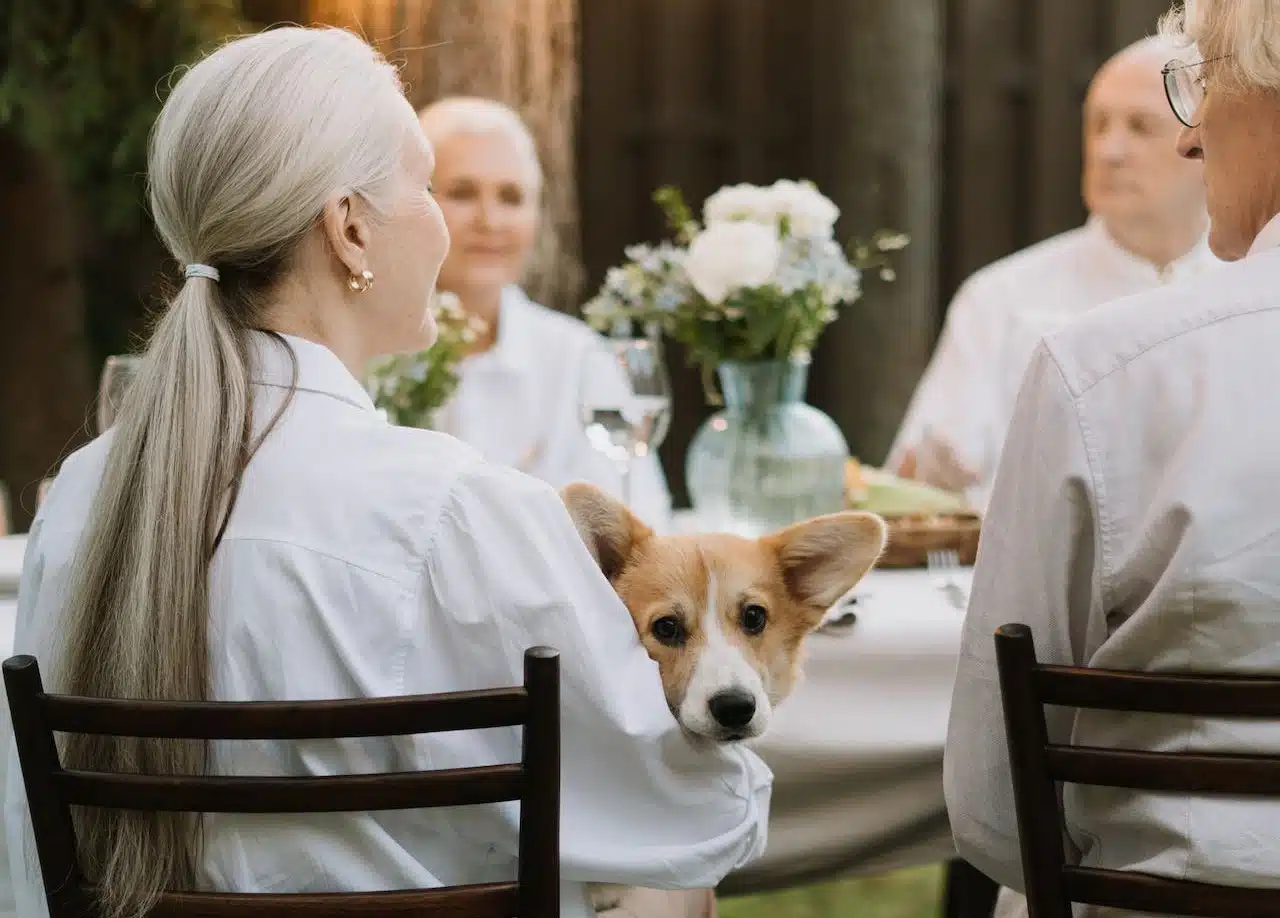Home » Blog » Pet » Pet Parenting Lifestyle » Pet Parenting Mistakes To Avoid
Categories
Tags
animal welfare
breed profile
buying a car
buying a pet
Car
car accessories
car care
car features
car insurance
Car safety
car sales
car service
cat
cat behaviour
cat body language
Cat Breeds
cat food
cat insurance
comprehensive car insurance
Dog
Dog Behaviour
dog body language
Dog Breeds
dog food
Dog Insurance
dog training
eco friendly cars
Kitten
New Car
pet accessories
pet activities
Pet Adoption
pet breeders
pet days of the year
pet fun stuff
Pet Health
pet insurance
pet parenting
Pet Safety
pet services
Puppy
rescue pets
road safety
road trip
safe driving
Recent Blog:
Facebook Posts
2 days ago
Growing old sometimes means we can’t take care of pets anymore. Find out some advice on what to do when this happens:![]()
![]() Senior Pet Parents – Contingency Plans for Your Pet – bit.ly/44bzwkS
... See MoreSee Less
Senior Pet Parents – Contingency Plans for Your Pet – bit.ly/44bzwkS
... See MoreSee Less
Senior Pet Parents' Contingency Plans for Pets
www.pd.com.au
Sometimes senior pet parents need more downtime. For older pet owners, this can be tricky to navigate if their dog or cat is full of beans and wants to4 days ago
Before you rev up the engine, let’s run through a checklist of things to do before starting your car. Not only do these steps ensure your safety (and that of others around you), but they also help in maintaining your vehicle's longevity.![]()
![]() Driving Tips: Your Checklist Before Starting Your Car -
... See MoreSee Less
Driving Tips: Your Checklist Before Starting Your Car -
... See MoreSee Less
Driving Tips: Your Checklist Before Starting Your Car
www.pd.com.au
Heading out for a drive? Hold up a second! Whether you're dashing off to work, running errands, or embarking on a road trip adventure, there are a few1 week ago
Are intestinal worms setting up camp in your dog’s gut without paying rent? Here’s how to spot the main culprits and get rid of them too:![]()
![]() Preventing, Identifying and Treating Intestinal Worms in Dogs - bit.ly/43YjCKu
... See MoreSee Less
Preventing, Identifying and Treating Intestinal Worms in Dogs - bit.ly/43YjCKu
... See MoreSee Less
Preventing, Identifying and Treating Intestinal Worms in Dogs
www.pd.com.au
Intestinal worms, such as roundworms in dogs are one of the least glamorous topics on the planet. These intestinal parasites that basically use our dogsEver had a moment of clarity where you realised your behaviour towards your pup or kitty has set them back? Welcome to pet parenting mistakes. Don’t worry, we’ve all made them.
Not sure what we mean? Maybe your cat has trained you for their chosen mealtime by complaining at the crack of dawn, or you let your pup jump on guests because they’re still small and manageable (but won’t be for long). Or perhaps you’re too loud and frequent with admonishments, rather than encouraging training gently but firmly.
Here are seven of the most common pet parenting mistakes. How many have you made?
1. Inconsistent training
It’s a story many of us know well. You’re trying to get your pup onto a healthy diet, while another family member is sneaking them treats. Or maybe you’re trying to train a command, while someone else is sending mixed signals.
Remember that new pets don’t know the rules of your home – it’s up to you to teach them. And keep it consistent. Make sure all family members are on the same page and encouraging the same behaviours in the same ways.
Family chat before your you adopt your new dog? Honest convo when the new cat comes home? Best to do sooner rather than later.
And if you’re looking for some easy dog training tricks, check out this article.
2. Letting them be a loner
While some dog and cat breeds are naturally more outgoing, if you want a pet that’s friendly with other people and animals, you need to socialise them early.
Socialising cats is straightforward. Invite guests over and have them gently, slowly get to know your cat. Keep in mind that some cats will never be friendly, but if you don’t want your kitty quivering under the bed every time you have guests, it’s vital to get them used to the sights and sounds of new people early on.
Dogs are socialised in a similar way, however it’s even more important to socialise your pup with other dogs. This can be done through puppy training classes, doggy day care, park walks, and introducing your pup to the pets of trusted friends and family.
One of the other risks of not socialising your pet well is separation anxiety. You don’t want you or your family to be the only friendlies in your pet’s life or you risk emotional issues.
3. Unhealthy eating habits
Some pets can be free-fed (the practice of having food available at all times) and will self-manage their eating. Others are highly food-motivated and will vacuum down any morsel put in front of them, even if they aren’t hungry.
The situation can become even more complicated if you have multiple pets with different eating habits.
It’s vital to tailor your feeding schedule and even feeding locations (for multi-pet households) to each pet. Things like food insecurity, resource guarding, and overeating can lead to a range of health and mental issues and should be addressed as early as possible.
4. Sharing medication
One of the pet parenting mistakes you may not have even realised was possible is sharing medication with your fur baby.It’s true that some human medication can be given to pets. However, only a vet knows the ins and outs and can prescribe appropriate medication.
The same goes for giving your cat your dog’s medicine (or vice versa) – even if they’re the same size and weight. An accident with medication can cause serious illness or death, so it’s always better to check with your vet.
5. Too much tough love
Every pet parent knows the frustration of having your freshly planted hydrangeas dug up or your favourite pair of shoes decimated. While it’s understandable to be on the verge of losing your cool, remember your pets react strongly to your tone of voice and body language.
You may think you’re being firm but fair, however a sensitive pet can become stressed if your parenting style doesn’t match their personality.
If you notice any of these responses, it’s time to take a step back and try a gentler approach:
- Aggression
- Attempting to hide
- Trembling/shaking
- Hyperactivity
- Lack of appetite
- Loss of toilet training
- Lowered body language
- Shaking/trembling
- Whale eye (showing whites of eyes)
6. Not enough playtime
Some breeds – particularly those that are intelligent or predisposed to being working dogs – need much more mental stimulation than a cat or your faithful lapdog.
When your tried-and-tested games just aren’t holding their interest, try new things like teaching commands, hiding treats, puzzles, or hide-and-seek. A bored pet will often become destructive and entertain themselves with your furniture, garden or clothes.
7. Being unprepared for emergencies
When you bring a new pet home, the last thing on your mind is illness or accidents. You may think it’s unnecessary or your savings account will stretch to cover it, but treatment can quickly spiral into thousands of dollars.
The sad reality is, you could easily find yourself in the heart-breaking situation of deciding between dollars and your pet.
What’s a quick, easy way to be a financially responsible pet parent? Get pet insurance. Not only can it help safeguard you when your pet is unwell or injured, it can help in other situations. For example, some PD Insurance plans pay for advertising and reward costs if your pet goes missing and all cover damage your pet causes to others’ property or person.
Over to you – Pet parenting mistakes
Have you made any pet parenting mistakes that you’ve learned from? Let us know so others can benefit from your learnings…
Share On:




